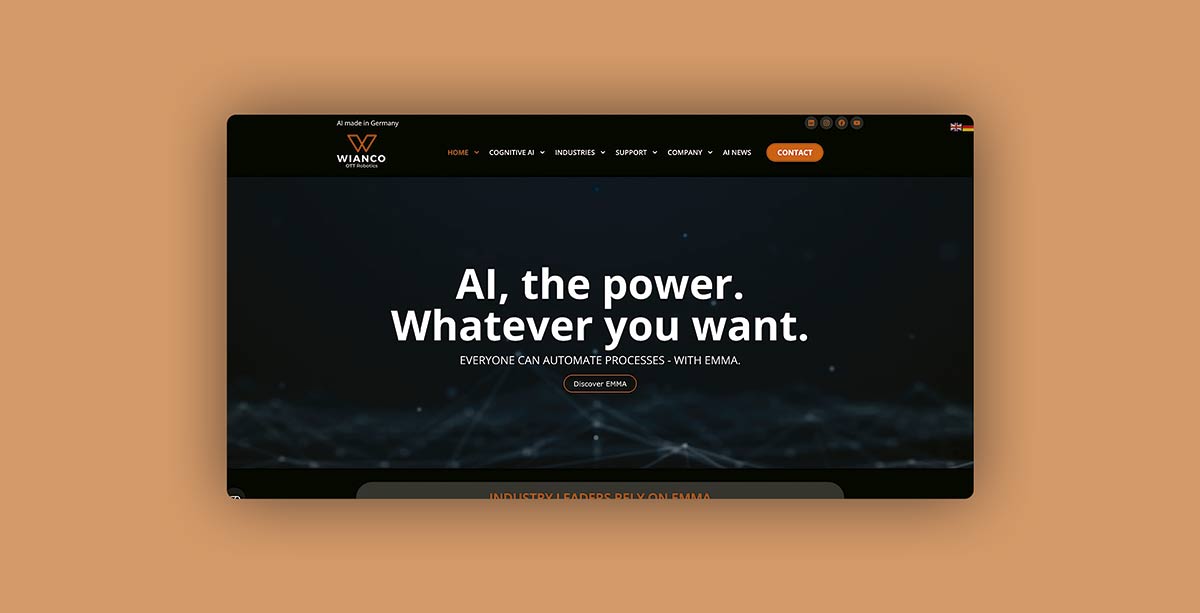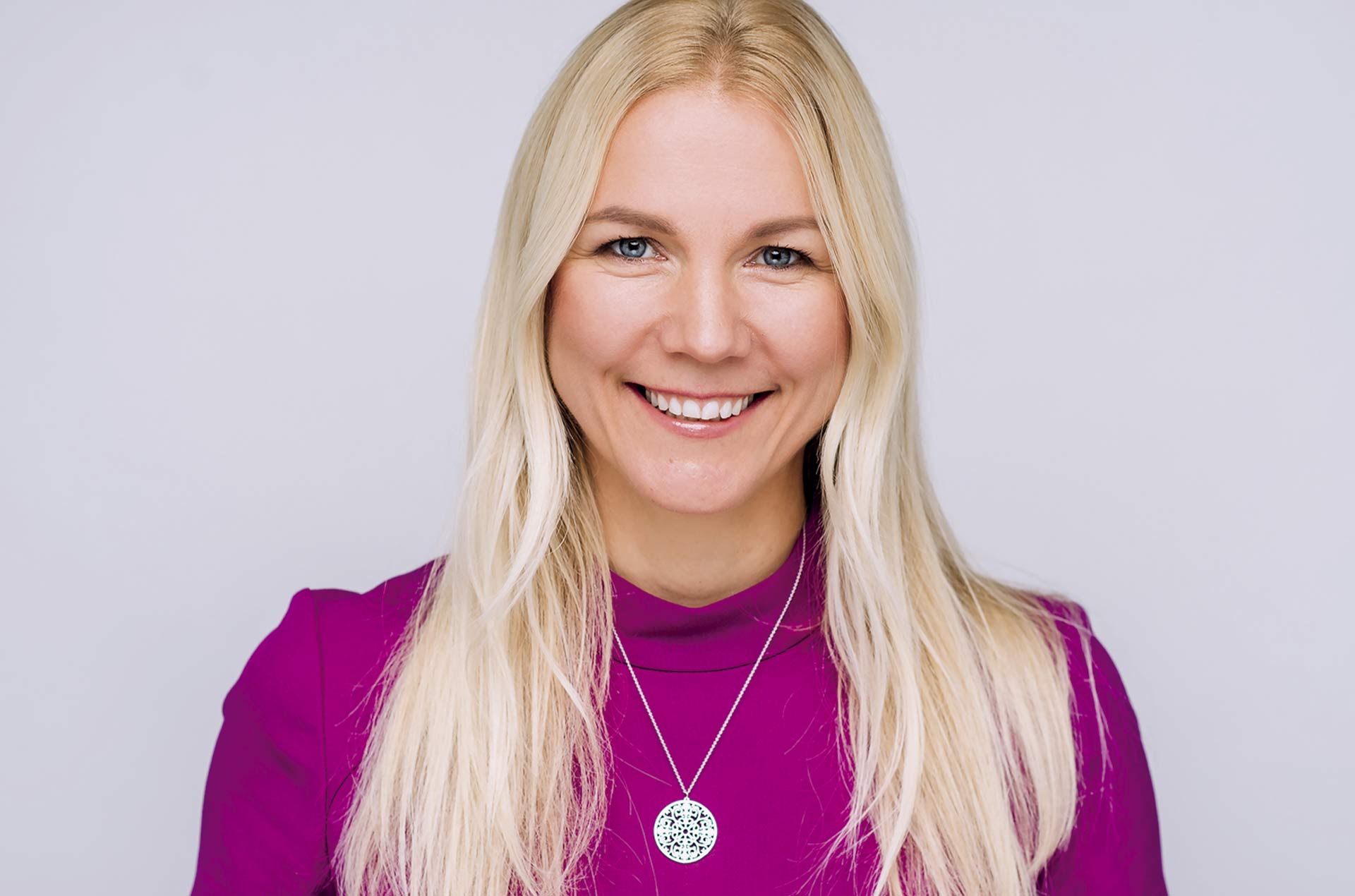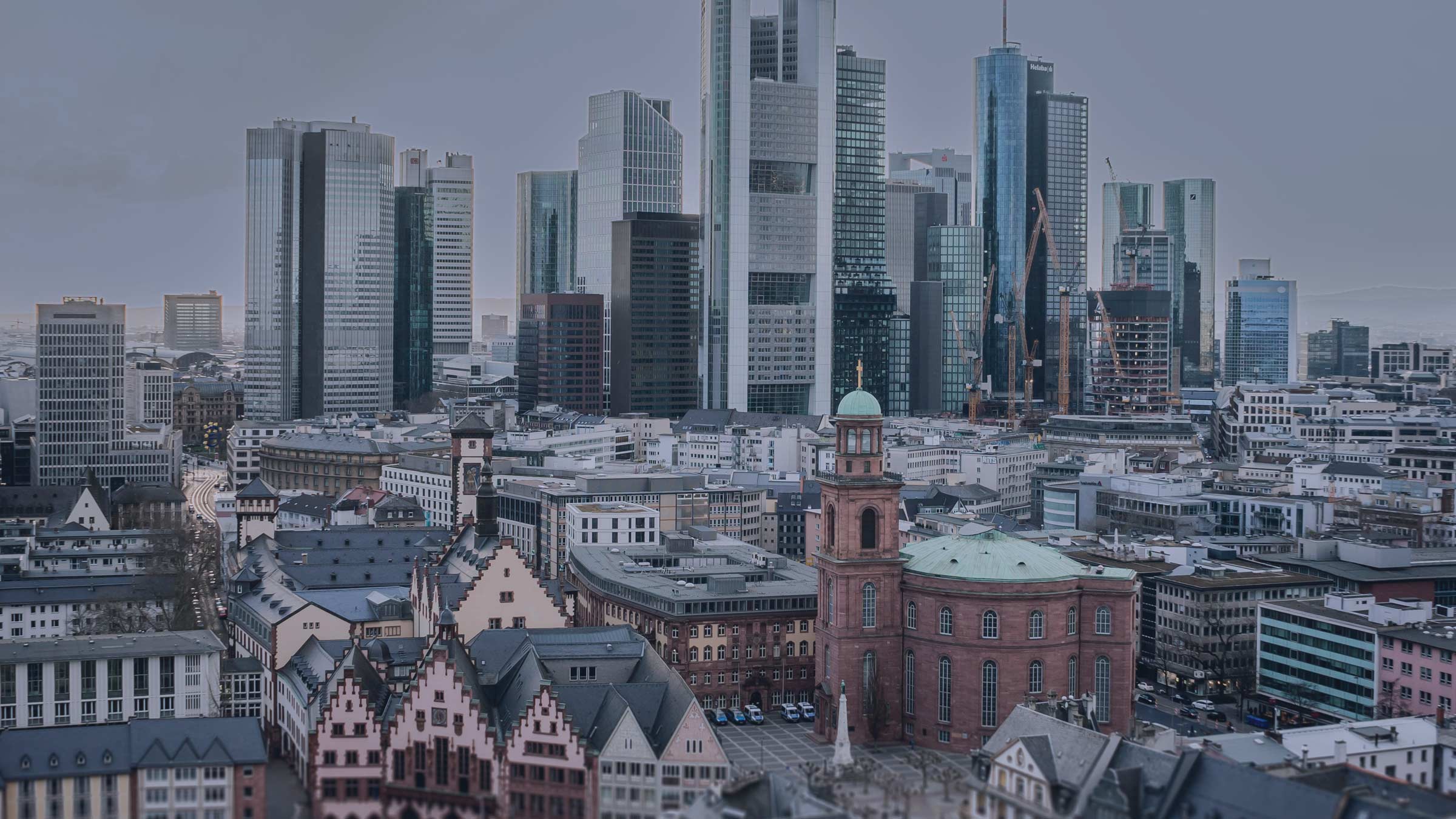
Frankfurt
Germany
The city’s economic foundation is grounded in its historic role as a trade and transport hub in the Middle Ages. This former medieval marketplace has since evolved into a major center for banking, logistics and manufacturing, eventually becoming the birthplace of the German stock exchange.
Today, the city area (Frankfurt am Main) is home to around 750,000 residents, with more than 6 million people in the wider metropolitan area. Frankfurt am Main is not only Germany’s financial capital but also the fourth-largest metropolitan economy in the European Union (trailing only Paris, Madrid and Milan) with a GDP of around €81 billion (~$90 billion) in 2022, according to Eurostat. The surrounding Frankfurt Rhein-Main region continues to support an industrial base, including automotive suppliers, pharmaceuticals and life sciences, and precision engineering, which coexist with a dynamic digital-and-service economy.
A skyward, well-connected city
Frankfurt is nicknamed “Mainhattan” for the river that runs through the city and Manhattan in the US, in reference to its distinctive skyline of modern high-rises and skyscrapers. It’s the only German city with such a dense cluster of tall buildings, and is home to 19 of the 20 tallest in the country. This vertical urban profile is unusual in Germany, where historic preservation and strict zoning laws typically limit building height.
Its central position and proximity to cities such as Basel, Stuttgart and Cologne (all approximately 90 minutes), supports easy test and scaleup access. The Frankfurter Kreuz is Europe’s busiest Autobahn junction, facilitating approximately 320,000 vehicles per day. The city also offers fast rail connections to more than 110 European cities via ICE trains. Frankfurt Airport, Europe’s largest cargo hub, is a mere 15-minute drive from downtown. It connects to over 300 destinations in around 100 countries.
Europe’s financial command center
As Europe’s financial nerve center, Frankfurt hosts the European Central Bank, Germany’s Bundesbank and the newly established EU Anti-Money Laundering Authority (AMLA). The city is a key hub for over 180 foreign banks and more than 200 regional institutions. It also accommodates globally significant fintech activity and maintains Europe’s largest internet exchange (DE‑CIX).
A hub of high-tech and innovation
The Rhine-Main-Neckar region, which includes Frankfurt, is Europe’s most significant IT cluster, accounting for about 50% of the revenue of Europe’s top 100 software companies. Frankfurt, as Europe’s financial hub, is home to 330 financial institutions and the AMLA (Authority for Anti-Money Laundering). The region is also home to the ATHENE Digital Hub Cybersecurity in Darmstadt, largest research center for cybersecurity and privacy in Europe; and TechQuartier, and a leading innovation center for fintech, agrifood, greentech and deeptech startups. TechQuartier supports more than 700 startups, spans 3,200 m² of coworking space and is officially recognized as Germany’s FinTech Hub.
Academic mass for innovation
The Frankfurt-Rhine-Main region is anchored by 43 universities and higher education institutions, educating more than 250,000 students. Among the most prominent are Goethe University Frankfurt, known for its strong programs in economics, finance and natural sciences; Technical University of Darmstadt, a leading engineering and computer science institution that plays a central role in Germany’s cybersecurity research; Johannes Gutenberg University Mainz, with recognized strengths in medical and life sciences; and Frankfurt University of Applied Sciences, which focuses on practice-oriented teaching across engineering, IT and design disciplines.
A particularly high share of students are enrolled in science, technology, engineering and mathematics (STEM) subjects, making the region a vital talent pipeline for technical and research-intensive industries. According to the NRW Startup Report 2024, Frankfurt has the highest density of STEM students per capita among all German metro regions, reinforcing its competitive edge in innovation, R&D and digital transformation.
Green lungs and vibrant culture
Despite its financial capital credentials, Frankfurt remains one of Germany’s greenest major cities. It has over 8,000 hectares (19,769 acres) of parks and forests, including the Frankfurt City Forest, Germany’s largest intra-city woodland.
Cultural life in Frankfurt is anchored by the Museumsufer (Museum Embankment), a unique cluster of 26 museums lining both sides of the River Main. Highlights include the Städel Museum, renowned for its European art collections spanning seven centuries; the German Film Museum, celebrating the country’s cinematic heritage; and the Museum of Communication, which traces the evolution of media and messaging.
The city borders Rheinhessen, Germany’s largest wine-producing region, known for its white varietals like Riesling and Silvaner. The Taunus Mountains offer hiking trails and access to the Limes, a UNESCO World Heritage site marking the ancient Roman frontier. There are also certified long-distance cycling routes, including the MainRadweg, a scenic 600-km path following the Main River from its source to its confluence with the Rhine.
An international and connected ecosystem
Frankfurt’s population is notably youthful and international: roughly 33% of residents have a migration background, representing over 180 nationalities. The city’s economic performance ranks among the best in Germany, with Hesse’s GDP per capita exceeding the national average by 12.4%. The startup ecosystem thrives with more than 75 industry clusters and networks, supported by coworking spaces such as TechQuartier and a rich calendar of meetups and networking events. Station, a local news platform for startups with a vibrant network and event listings, also connects founders and other ecosystem players across the region and beyond.
Facts and Figures
Frankfurt Airport handled 2.05 million tons of cargo in 2024, up 6.2% from 2023 (The STAT Trade Times).
In 2023, Frankfurt received over 13.76 million visitors, 24% from abroad (PERFORM, FrankfurtRheinMain in Figures 2024)
Cycle-sharing usage surged 159% in 2023, placing Frankfurt among Europe’s top 20 cities for bikes per 10,000 inhabitants (Cycling Industries Europe, Shared Ambition 2024)
Once a free imperial city of the Holy Roman Empire, Frankfurt’s political independence lasted from 1372 until 1806.
The Paulskirche was the meeting place of the first freely elected German National Assembly in 1848 and is a symbol of German democracy.
Startups
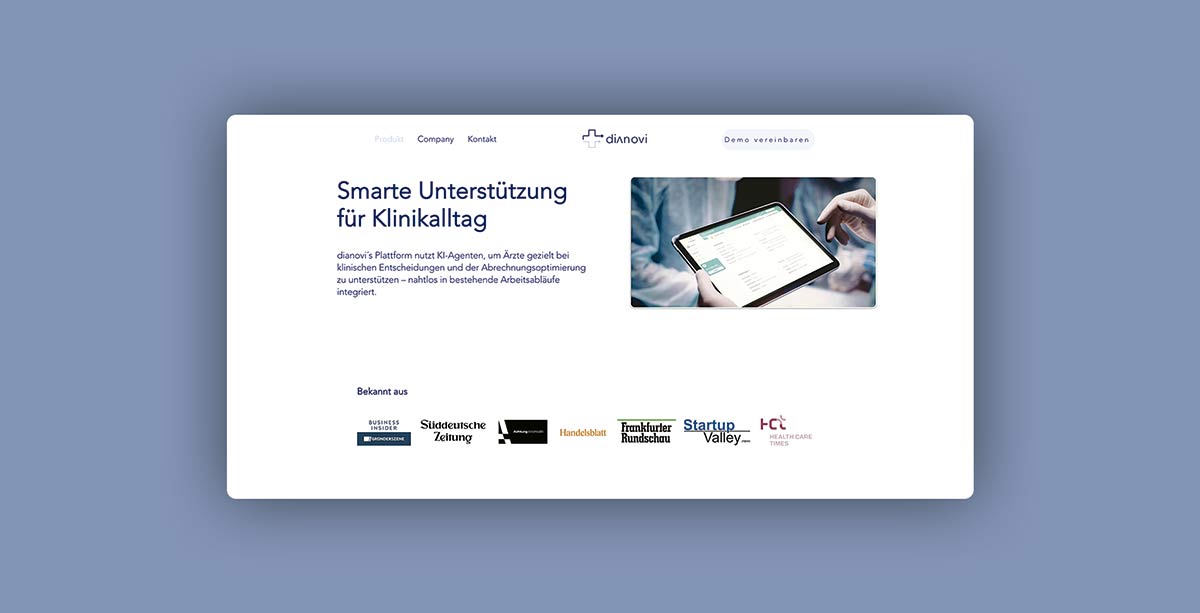

Dianovi offers an AI-powered platform that supports clinical decision-making and billing optimization in hospitals. Its intelligent agents provide personalized diagnosis suggestions, guideline-based treatment steps and quality-assurance tools. Seamlessly integrated into hospital workflows, it improves accuracy, efficiency and reimbursement outcomes.


Ebb & Flow Keg is redefining wine service with a sustainable keg-based system for hospitality, events and catering. By replacing single-use glass bottles with reusable kegs, it reduces the wine’s carbon footprint by up to 40% and promotes a circular, low-waste beverage culture.
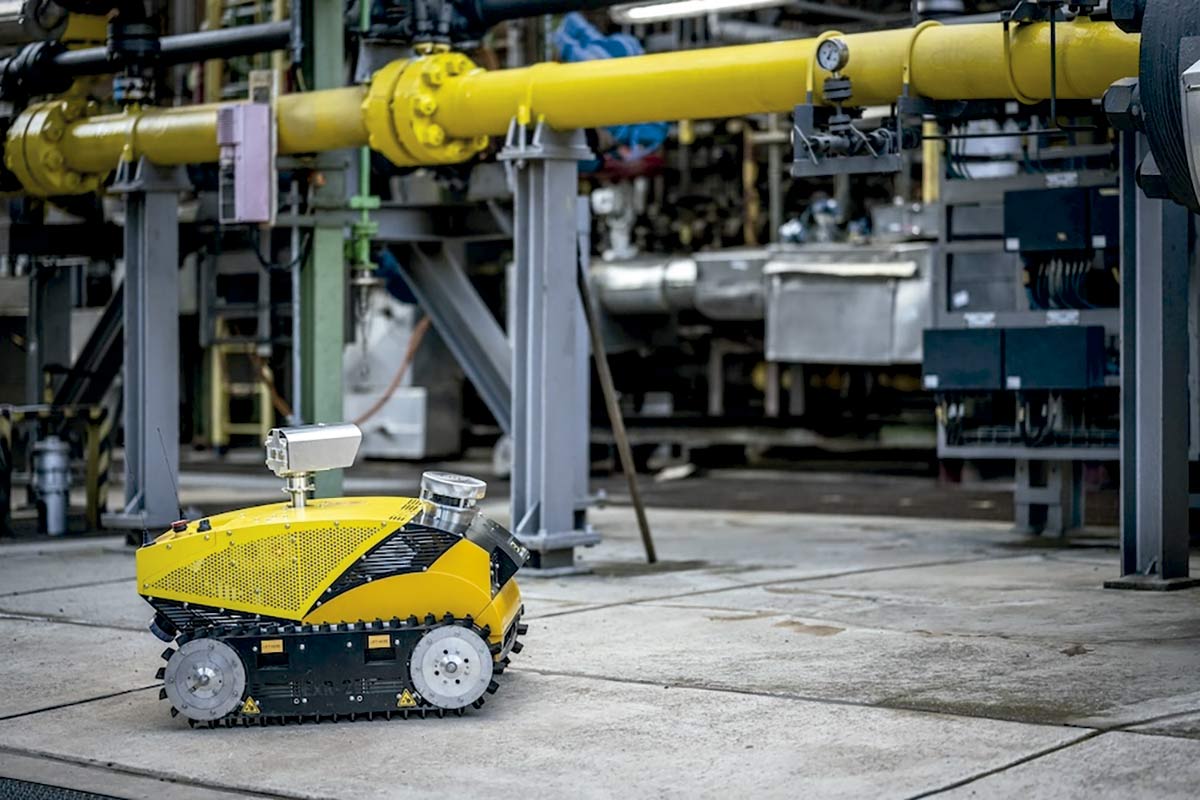

This AI-powered software platform for autonomous inspection robots and drones originates from award-winning research at TU Darmstadt. The technology enables robots to perform remote industrial inspections safely and efficiently, integrating with asset-management systems and delivering AI-driven insights for predictive maintenance.


Leverest, a digital platform that streamlines transaction management for private debt and leveraged finance, connects borrowers and advisors with a wide network of lenders, offering features such as tech-assisted deal preparation, intelligent lender matching, real-time data rooms and term-sheet comparisons.
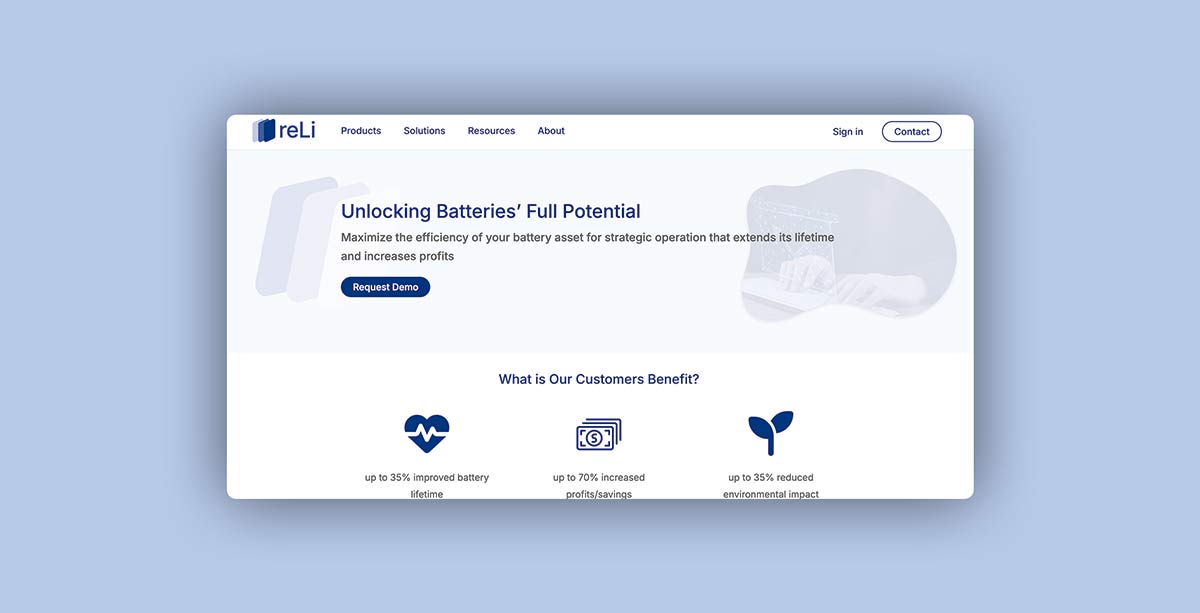

reLi Energy’s software solutions optimize the performance and economics of lithium-ion battery systems. The Battery Cost API provides real-time calculations of battery degradation and costs, enabling data-driven financial decisions; and Battery Analytics delivers insights into battery health, usage patterns and lifetime forecasts.


Revoltech develops next-generation biomaterials that are animal-free, biodegradable and truly sustainable. The flagship materials are MATTR™, made from algae, and LOVR™, made from hemp residues. They replace leather and synthetics with regenerative alternatives and offer high performance with low environmental impact.
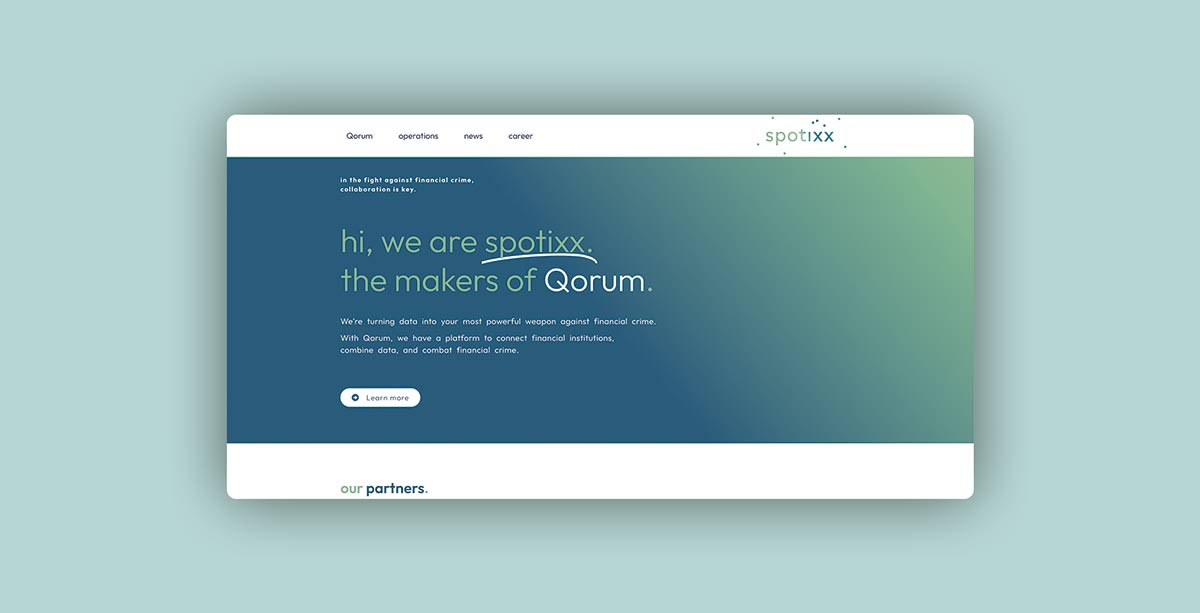

Spotixx uses advanced AI to revolutionize fraud detection and anti-financial crime monitoring. Their platform integrates with existing systems to uncover complex patterns and prevent money laundering through behavioral analytics and predictive intelligence. Recognized as one of the fastest-growing fintechs in Germany.
Interviews

David Schneider’s journey from a small village near Frankfurt to expanding Qualifyze to three different countries might look linear from the outside, but it involved a decade of experience working in investment banking, Fortune 500 companies and at McKinsey as a management consultant as well as juggling a PhD in information systems at the Technical University of Darmstadt, navigating funding pressure and making early product pivots.
Programs to know about
AI-focused startup teams
hessian.AI supports AI-driven startups through the AI Startup Rising Accelerator, a three-month program for scaleups; and the Lean AI Startup Funding (LAISF) program, which provides six months of support and material funding up to €30,000 (~$33,500) to early-stage, research-based teams.

Startups and scaleups based in or expanding into the FrankfurtRheinMain region
Frankfurt Forward, an initiative by the City of Frankfurt am Main, connects startups with CEOs, investors and policymakers to drive innovation and digital transformation across sectors through curated one-to-one matchmaking, exclusive events and the Startup of the Year award.

Aspiring founders, early-stage startups and growth-stage ventures in the agrifood and sustainability sectors
Growth Alliance, a joint initiative by Landwirtschaftliche Rentenbank and TechQuartier, supports innovation in agriculture, food and bio-based solutions. Through its programs, it helps founders from idea development to scaling with expert mentoring, workshops, investor matchmaking and a cross-sector network.

Fintech startups aiming to scale, validate partnerships and connect with key players.
This equity-free program organized by TechQuartier brings together top fintech founders and corporate innovators to tackle sector-wide challenges such as open banking, fragmented data and emerging tech. Participants gain direct access to financial regulators, investors and strategic partners.

Funding Opportunities
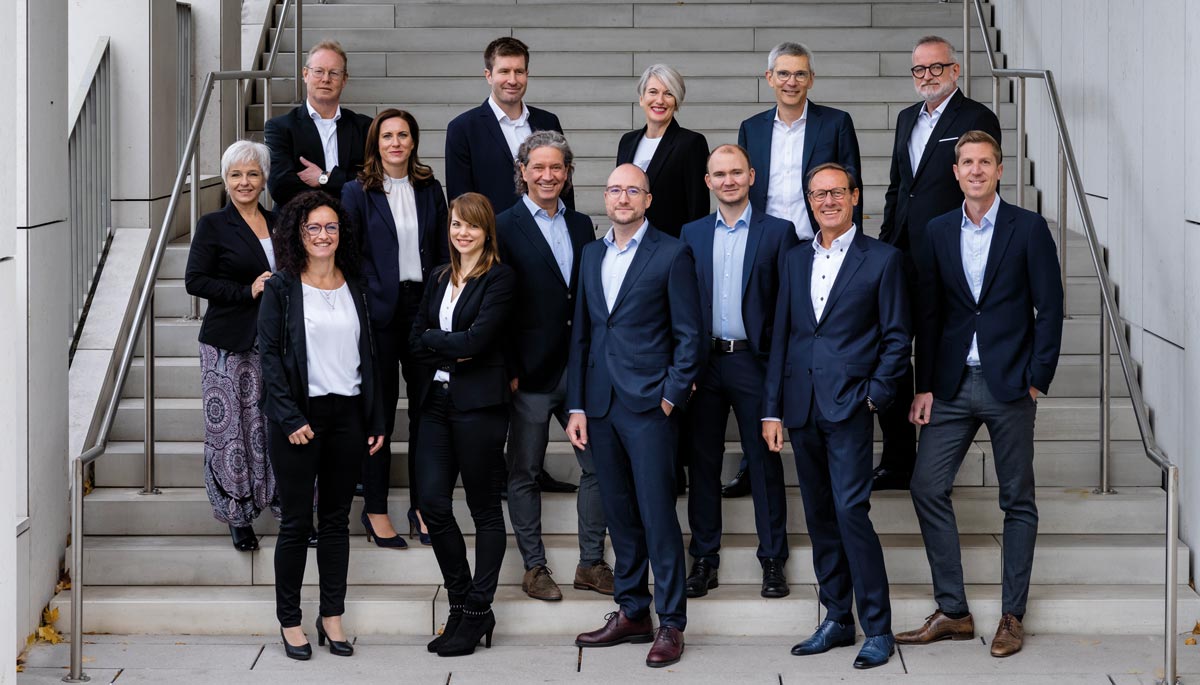

BMH (Beteiligungs-Managementgesellschaft Hessen), a state-backed investment firm, provides equity and mezzanine financing. It invests in early-stage ventures, growth initiatives and buyouts, and actively supports the region’s most promising tech startups through the Technologie Fonds Hessen fund.
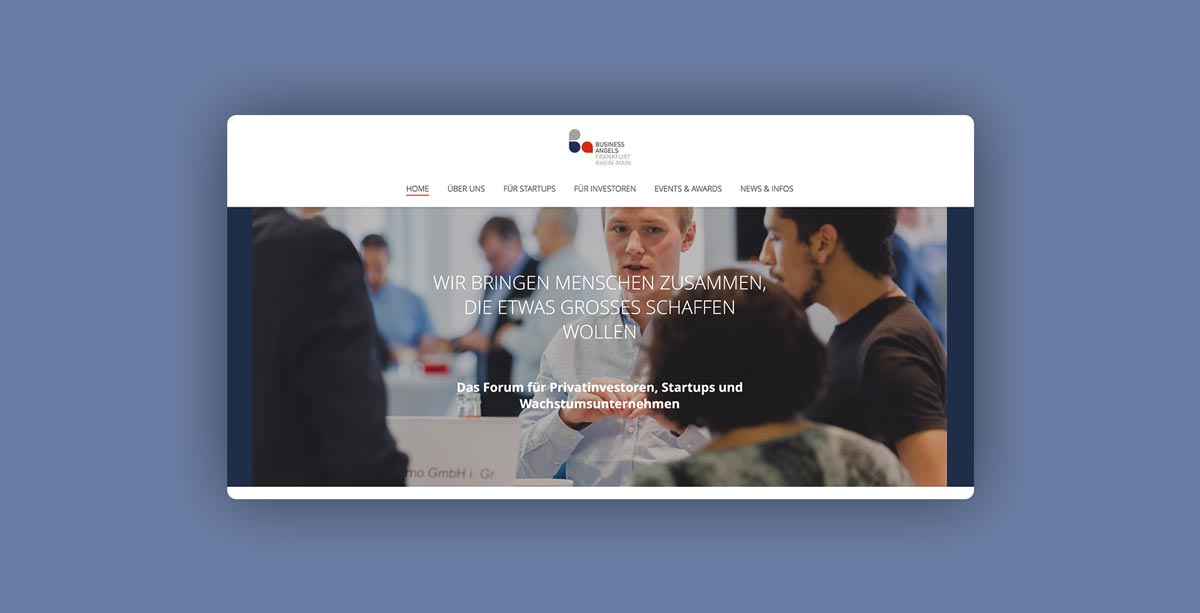

The nonprofit association Business Angels FrankfurtRheinMain has been connecting early-stage startups with experienced private investors and strengthening Germany’s ecosystem for over 20 years. It syndicates 90% of investments.
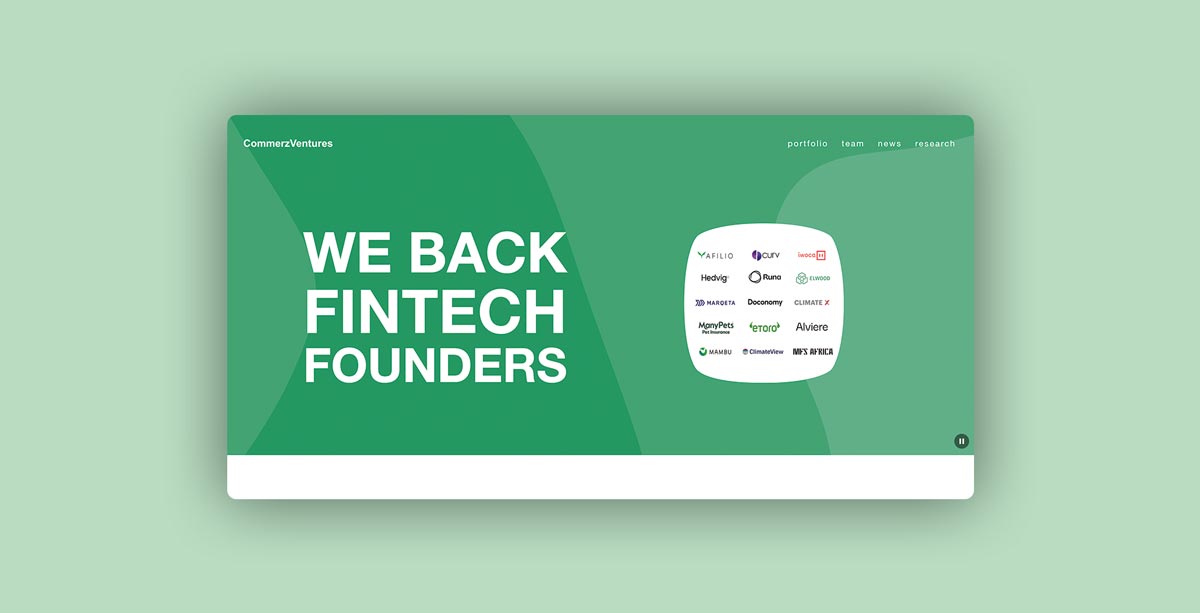

CommerzVentures, an independent, return-driven VC firm, manages €550 million ($558 million) across three funds. It invests in visionary founders shaping the future of fintech, with a growing focus on climate and impact-driven fintech and backs companies across Europe and beyond.
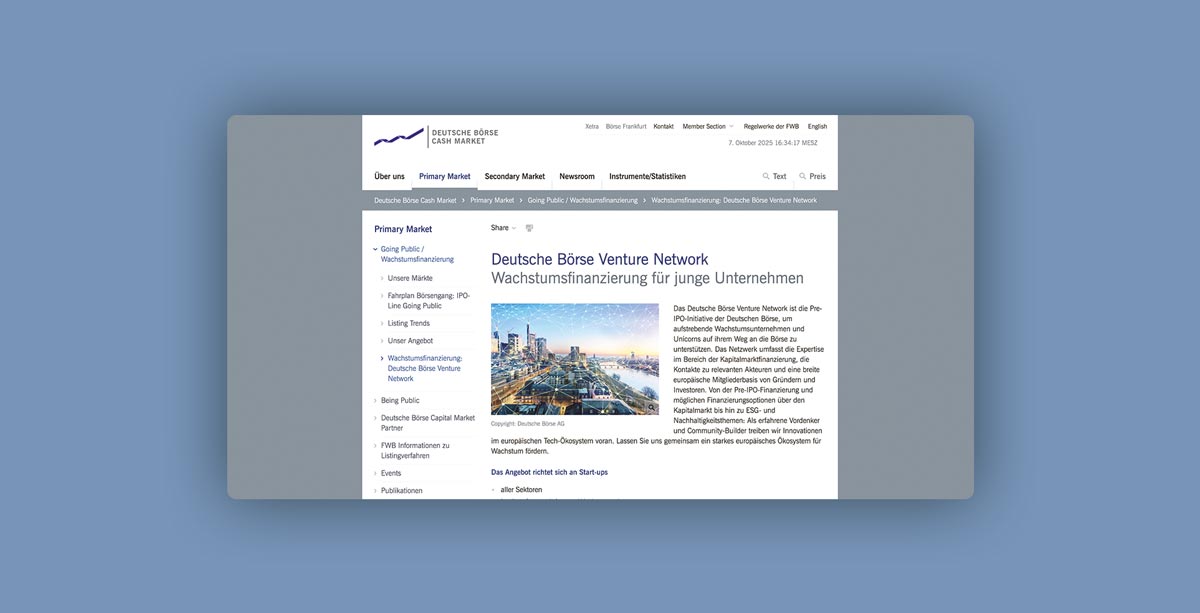

The Deutsche Börse Venture Network supports late-stage startups and scaleups, connecting them with European investors and offering financing options and IPO expertise. Through events, webcasts and The Road to IPO podcast, it helps founders explore exit strategies and navigate funding rounds.
Urban Impact Solutions
Frankfurt Green City, the city’s long-term initiative for sustainable urban development, brings together government departments, civil society and local communities to co-create solutions that address climate change, resource conservation and urban resilience. The initiative tackles issues such as heat stress, water scarcity and mobility with integrated, participatory approaches. Since its launch, it has supported foodsharing projects, funded repair cafés to reduce waste, launched a citywide water-conservation campaign and supported more than 8,100 residents in a cycling initiative to promote low-emission mobility. Its sustainability strategy is aligned with the UN’s Sustainable Development Goals, strengthening transparency and long-term urban planning.

Frankfurt frischt auf (Frankfurt Freshens Up) is the city’s climate-adaptation initiative aimed at greening urban spaces. Expanded through the Klimabonus program, it also now funds renewable energy measures. Frankfurt residents, businesses, organizations and communities can receive grants for green roofs, facades and courtyards, as well as for cisterns, drinking fountains and now photovoltaic systems (PV) with battery storage and charging stations. The program supports both climate protection and adaptation by cooling the urban environment, reducing emissions and promoting water retention and solar energy use. It empowers local stakeholders to directly contribute to Frankfurt’s environmental goals while improving quality of life.

The IMPACT FESTIVAL is Europe’s largest B2B event for sustainable innovation, bringing together greentech and impact startups, corporates and investors to drive economic transformation. Held across 7,500 m² with more than 4,000 visitors, at least 130 investors and 200 showcased solutions, it serves as a dynamic platform for scaling sustainable technologies. The festival accelerates innovation that addresses climate and societal challenges, creating space for real dialogue and collaboration and fostering connections that move beyond discussion, turning vision into action for a responsible, future-ready economy.





